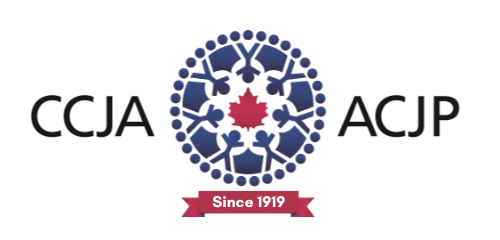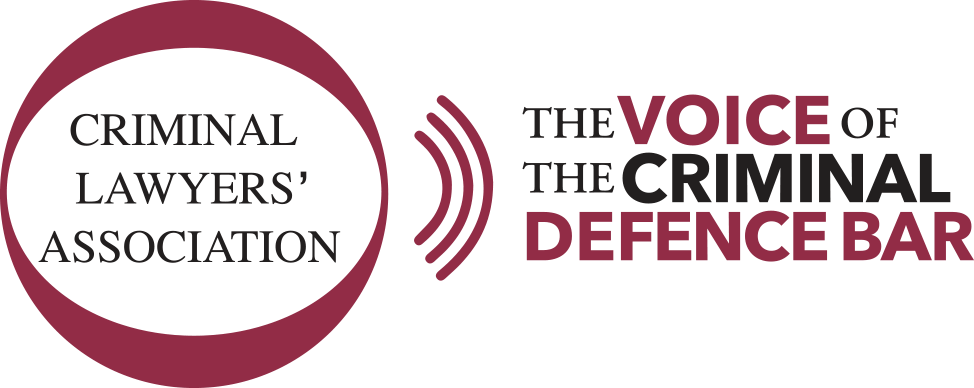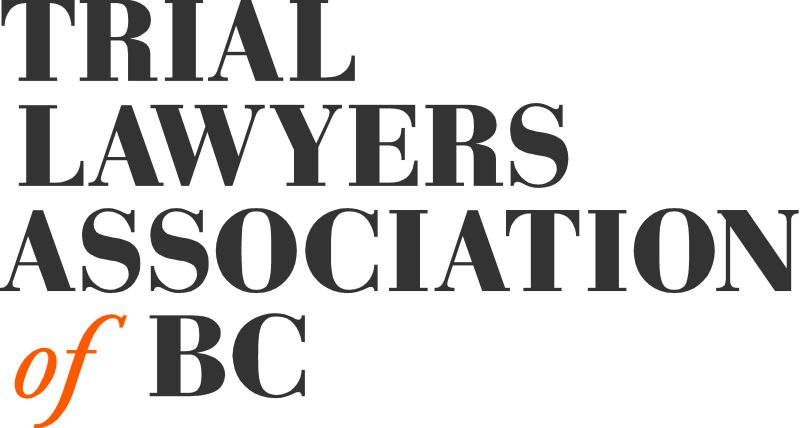
Explore how criminal lawyers' associations in Canada can support legal professionals with its resources, advocacy, and education, and which suits best for you

Having a strong defence—both in and out of the courtroom—is essential for criminal lawyers. For this, a criminal lawyers’ association is one of the greatest allies they can have, whether it’s advocating for justice or offering a helping hand to its members.
In this article, we’ll discuss the different criminal lawyers' associations that Canadian defenders can turn to. We’ll also talk about the purposes of these associations, the benefits of joining one, and the process of becoming a member.
We can categorize criminal lawyers' associations according to membership, scope and region, and the work they do for lawyers.
There are those that allow criminal lawyers to become members and give them legal and professional assistance. There are others that function as educational programs for their members.
What’s important is that lawyers are comfortable with the association that they’ll be joining, and that the association can aid them whenever the need arises.
Here’s a list of the different criminal lawyers’ associations in Canada, in no particular order:
Criminal lawyers can also join the programs or practice area sections of legal organizations and law societies.
We’ll discuss each of these associations below; you can also use the table of contents above to skip to any of these associations.

While most criminal lawyers’ associations in Canada are for those in the private practice, the CACC is the association for those who are working for the Crown. The CACC is the national association that represents the interests of Crown prosecutors and Crown lawyers.
The goals of CACC are to:
Through the CACC, the government and the public are made aware of the issues in Canada’s criminal justice system. These include the shortage of Crown prosecutors and lawyers, resulting in heavy workload and hampered justice for all parties.
Just like any other lawyers’ associations in Canada, the CACC also intervenes in cases. This is especially true in cases that will affect the Crown prosecutors and lawyers. An example is CACC’s intervention in a case in Alberta involving the Alberta Crown Attorneys’ Association.
Aside from individual membership to the CACC, its members include representatives from the different federal, provincial and territorial associations for Crown lawyers and prosecutors. These criminal lawyers' associations include:
Similarly, lawyers working for the Crown and the government can join in any of these associations, separate from their membership with the CACC.

The CCJA, or Association canadienne de justice pénale (ACJP) in French, is a national umbrella organization whose goal is to improve Canada’s criminal justice system. Founded in 1919, this criminal lawyers' association continues to:
CCJA is another association that criminal lawyers can join. As an individual member, there are two membership categories to choose from, although corporations can also join the CCJA.
These categories only matter for the membership fee to pay, and the publications the member will be receiving:
Category A: $60 membership fee; publications do not include the Justice Report and the Canadian Journal of Criminology and Criminal Justice
Category B: $145 membership fee; receives all publications and resources
Corporate: for corporations, partnerships, and other legal entities; $500 membership fee; receives all publications and resources

The CPLA is not just a criminal lawyers’ association but is also made up of academics and other professionals who work for and on behalf of prisoners. To sum up, the association is composed of persons who protect and promote the constitutional rights of prisoners in Canada.
As a manifestation of CPLA’s mandate, the association intervenes in cases of public interest. These may have a huge impact on the rights of Canadian prisoners, more so on the person subject of the decision.
The CPLA also provides legal input whenever there are new laws and rules of procedures being proposed by the law-making authorities.
In 2024, the CPLA has successfully held the Canadian Prison Law Conference, in partnership with the Peter A. Allard School of Law – University of British Columbia.
Membership with the CPLA is divided into two types, whose membership fees will also depend on:
As criminal lawyers' association for prison law advocates, lawyers who represent prisoners will find great resources with the CPLA. The association has its own members-only listserv, where users can post questions and connect with other professionals.
This non-profit organization offers publicly available resources that are related to the ins and outs of the Canadian penal system. They also give out legal information that is aimed at helping professionals in assisting their prisoner clients.
 The Criminal Lawyers’ Association (CLA) is a Toronto-based group where criminal lawyers across Ontario, and other provinces or territories, can gain membership. As a not-for-profit criminal lawyers’ association, it caters to the needs of criminal law practitioners, specifically criminal defence lawyers.
The Criminal Lawyers’ Association (CLA) is a Toronto-based group where criminal lawyers across Ontario, and other provinces or territories, can gain membership. As a not-for-profit criminal lawyers’ association, it caters to the needs of criminal law practitioners, specifically criminal defence lawyers.
The main objectives of the CLA include:
advocacy work before the different levels of the government and the judiciary, regarding issues on legislation and the administration of criminal justice
assisting its member-lawyers on all aspects of criminal litigation, through legal education, providing resources and publication, etc.
In addition, the CLA helps the public who are looking for criminal lawyers, or if they need assistance with their criminal case. The CLA has its own directory of its members, which can be accessed by anyone.
CLA organizes different criminal defence law conferences, called the spring and the fall conferences. These are on top of the other programs that the CLA organizes every now and then, such as the CrimLawEd, both in-person and online.
As part of CLA’s advocacy, here’s Boris Bytensky, currently the CLA President, talking in a podcast about what would have been Canada’s Online Harms Act:
Find more podcasts in CL Talk, which features insights and updates as discussed by key leaders from the different areas of the justice system.
Criminal defence lawyers who want to join the CLA can choose from these four main classes of membership, according to their circumstances:
Active/Full Member: must be a member in good standing with the Law Society of Ontario (LSO), whose significant portion of their practice of criminal law is devoted to defending criminal charges or to the interests of the defence bar
Observer Member: those who are practising criminal defence lawyer outside of Ontario, and is a member in good standing with their own law society
Affiliate Member: those who are neither eligible as an Active/Full Member nor an Observer Member, but is a practising lawyer in good standing with their law society
Student Member: for students-at-law or students at Canadian law schools
Membership fees for this criminal lawyers' association will also depend on these classes. Those who are interested can apply between the months of January and September. Membership is valid until March of next year and can be renewed annually. Criminal law firms do have a special discount when covering the costs of most or all their lawyers.
The class of membership also affects the benefits that one receives. Below is a summary of the benefits of Active/Full Members of the CLA:
Some of these are not available for other classes of members, such as Students, Observers, and Affiliates. Also, not all resources that are available online can be accessed by everyone, since some are restricted to members only.
 Alberta’s criminal defence counsels can join the Criminal Trial Lawyers’ Association (CTLA), a provincial-wide criminal lawyers’ association. Already in existence for more than 40 years, the CTLA is open for membership among lawyers and law students in the field of criminal law. Aside from continually educating its members on updates in criminal law, they’re involved in public education and advocacy work, including calling for legal reforms, among others.
Alberta’s criminal defence counsels can join the Criminal Trial Lawyers’ Association (CTLA), a provincial-wide criminal lawyers’ association. Already in existence for more than 40 years, the CTLA is open for membership among lawyers and law students in the field of criminal law. Aside from continually educating its members on updates in criminal law, they’re involved in public education and advocacy work, including calling for legal reforms, among others.
In 2024, the CTLA hosted the first Alberta Criminal Defence Conference. It is an in-person event attended by criminal defence lawyers and experts in the field of criminal law.
Subject to approval by the general membership, criminal defence lawyers who become members of the CTLA have many benefits, such as:
To be a member of the CTLA, interested lawyers can simply fill-out a Membership Application or Renewal Form, and fax it back to CTLA along with appropriate membership cost. Those who have been members of the bar for at least five years have higher costs.

Criminal lawyers in BC can join the Trial Lawyers Association of British Columbia (TLABC), a non-profit society based in Vancouver. The TLABC welcomes lawyers and law students from different practice areas, such as those who are in civil law litigation and in criminal defence.
The main objectives of the TLABC are to:
TLABC’s services are divided into two. These are designed to look out for not just its members, but also the public’s welfare:
member services: as a “service organization for trial lawyers in BC,” the TLABC provides membership resources and education services to its member-lawyers; these include trial practice and area-specific listservs, legal education seminars, and the publication of its own magazine called The Verdict
advocacy: to protect the rights of individuals and enhance the practice of law in the province, the TLABC advocates for positive changes in BC’s legislation and its rules of court proceedings, and participates in public-interest cases and appeals, and other important public-minded campaigns
Those who want to join this lawyers’ association can do so by choosing the appropriate membership category:
Regular: trial lawyers who are licensed to practice in BC, including criminal defence lawyers and civil lawyers who represent plaintiffs for the most part
Benefactor: a premium membership level for those who “recognize that TLABC has been instrumental to their success” through a higher membership due
Sustaining: another premium membership level for trial lawyers who “go the extra mile for TLABC” with an increased membership due
Associate: for practicing lawyers who are licensed in BC, but do not qualify for Regular Membership; i.e., they represent the defence in civil cases, or they act for the Crown rather than the accused in criminal cases
Out-of-Province: lawyers who live and practice outside BC, and are members in good standing of the Law Society that governs them
Benefactor and Sustaining Membership requires larger membership dues, compared to Regular Members. However, it also comes with additional perks, such as discounts during education seminars and complimentary subscriptions.
Other membership categories for those who are not (or not yet) lawyers include Articling Student, Law Student, Paralegal/Legal Assistant, Retired/Non-Practising Lawyer, and Non-Lawyer.
The Winter issue of the Verdict is here! Read about children's capacity to take part in legal matters, what to do when mediation fails, and more. TLABC members, read your copy here: https://t.co/tUZFOJvNme pic.twitter.com/pIB1zt2rxJ
— TLABC (@tla_bc) December 4, 2024
Members of TLABC, but subject to the membership category they joined as, can have several benefits, including:
access to educational resources that can help one’s practice of law, either in civil or criminal litigation
complimentary Trial Practice Listserv access and other networks, where members can easily share information among each other
discounts on continuing legal education (CLE) programs, whether in-person events or webinars, including past seminar materials
access to a trusted online job board and classifieds when looking to hire someone, a job, or even spaces to rent out
use of the Member Directory when looking for other trial lawyers in the province; the directory can be filtered according to city, practice area, or even language

WiCCD, pronounced “wicked,” is an organization for all women-identifying lawyers in the field of criminal defence in Canada. It helps its members through educational opportunities. It advocates for women and gender non-conforming criminal defence lawyers.
This women’s law association provides a safe and inclusive space, where Canadian women lawyers can support and celebrate one another. For this, WiCCD aims to:
Acknowledging the gender-based discrimination its members face, WiCCD advocates for solutions to ensure genuine equality for women in the legal profession.
Women and women-identifying criminal defence lawyers can join the WiCCD. However, to join this criminal lawyers' association, they should not be working for the Crown (for which they can be eligible for a different organization).
Below are the different membership statuses when joining the WiCCD:
No matter the membership status, joining the WiCCD is free of charge.
Joining the WiCCD will automatically add the new member to their listserv, which can be used for any purpose, as long as related to the organization’s purposes. This criminal lawyers' association also organizes different events that members can join.
Some of the previous and upcoming events by WiCCD are:
In 2023, WiCCD’s YouTube channel was awarded by Clawbies as the year’s Best YouTube, mainly for its two standout video series:
Who Cares?: where legal professionals are interviewed about their legal practice and other relevant law issues of today
Find Your Niche: where women lawyers give out their insights, experiences, and even tips in the practice of criminal defence
Here’s one of the most recent Who Cares? episode of WiCCD from their YouTube channel:
Check out our Rankings page, which highlights the different Special Reports that rank lawyers and law firms across the country in every legal practice area.
While these are not criminal lawyers’ associations, the following programs or sections of legal organizations are still good sources of information for criminal lawyers. Engaging in their events and other activities can also be worthwhile, especially to network with other lawyers in the field of criminal law. These are in addition to what the provincial and territorial law societies offer for their own lawyer-members.
One practice area section of the Canadian Bar Association (CBA) is its Criminal Justice Section, which monitors and evaluates the following:
The National Criminal Law Program (NCLP) is a not-for-profit CLE program of the Federation of Law Societies of Canada (FLSC). It's open to all criminal lawyers from the different provinces and territories. The program is held annually.
In advocating the case of their clients, criminal lawyers need all the support they can get—not just from their clients, but also from the justice system they’re operating on. For this, criminal lawyers' associations are there to advocate for a more just system, while also helping lawyers in any way possible.
As judgments are rendered for or against an accused, what lawyers and associations hope for is that justice is served both ways and maintaining (or improving) the current criminal justice system.
Check out our page on Legal Education for more resources related to criminal lawyers' associations.